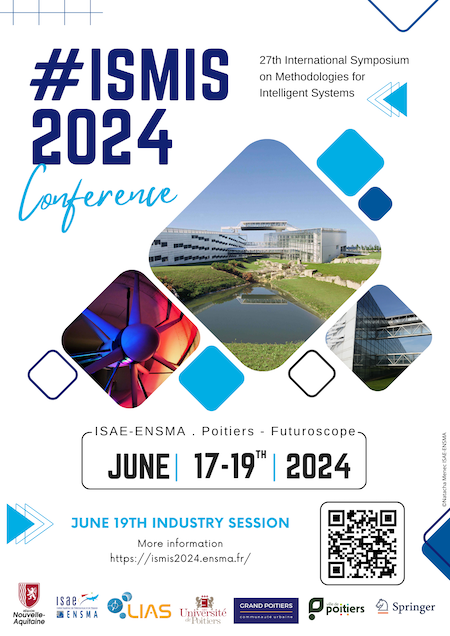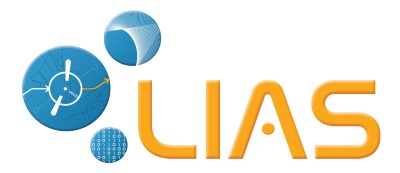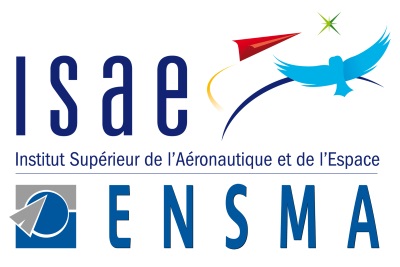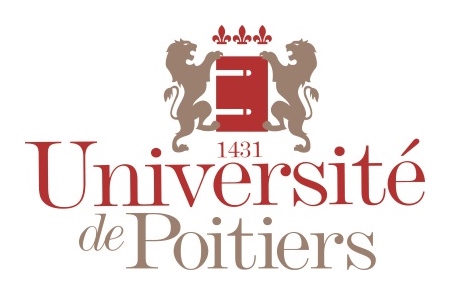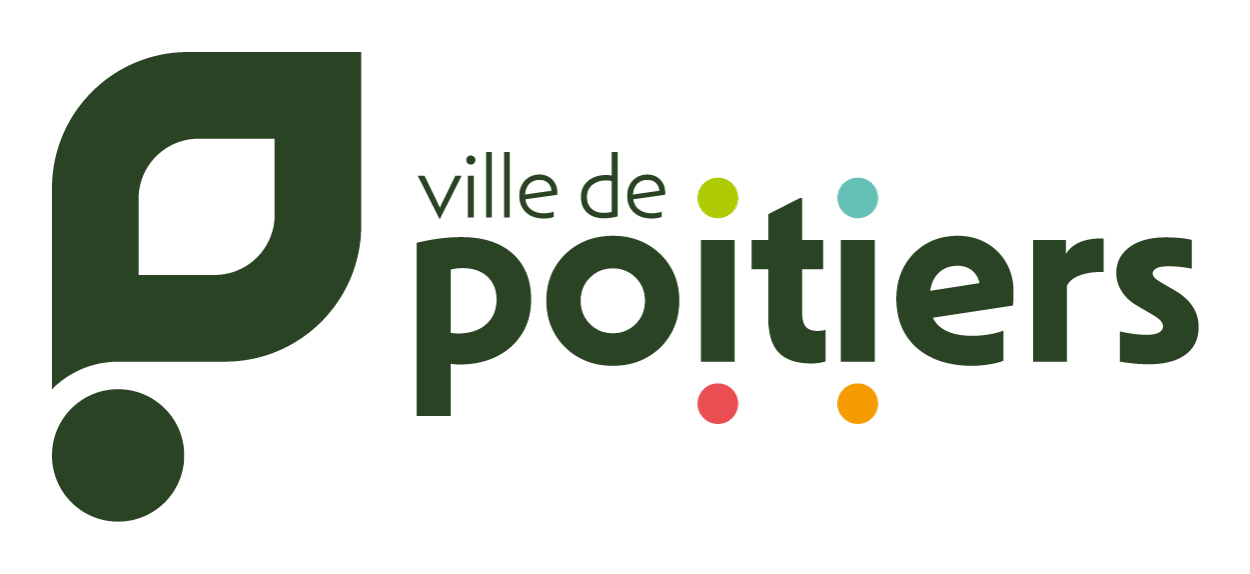Welcome to ISMIS 2024
27th International Symposium on Methodologies for Intelligent Systems
17-19 June 2024, Poitiers / Futuroscope, France 🇫🇷

ISMIS is an established and prestigious conference for exchanging the latest research results in building intelligent systems. It provides a basis for exchanging research results and transferring scientific achievements towards industrial and socio-economic applications. The scope of ISMIS is to present a wide range of topics related to the application of Artificial Intelligence (AI) techniques related to areas such as decision support, knowledge-based systems, machine learning, robotics, planning, computer vision, databases, information retrieval, configuration, and diagnosis. The conference also focuses on interdisciplinary research in AI-related fields, for example, decision support systems, human decision-making, recommender systems and personalization, knowledge-based systems development, cognitive aspects of knowledge understanding.
Conference Scope
This year’s conference theme spans over two main directions: “the concepts and metrics to evaluate the explainability of AI systems” and “the principles of responsible AI". With this focus, ISMIS 2024 aims at contributing to emerging challenges relative to the development of a new generation of fair and ethical AI systems capable of both “understanding” and “be understandable by” humans, adapting to complex real-world environments, appropriately interacting in complex social settings, mitigating possible cyber-threats and vulnerabilities, and aligning with Environmental, Social and Governance principles. The increased relevance of areas such as Autonomous Systems, Financial Services and Cybersecurity, and sensitive application domains such as Medicine, Manufacturing, Education, Earth Observation, Intelligent Maintenance and Military require systems with high accuracy, robustness, accountability, fairness, privacy/security, transparency, interpretability, and ethics.
ISMIS 2024 is intended to attract academics, researchers and practitioners who are actively engaged both in theoretical and practical aspects of intelligent systems. The goal is to provide a platform for a useful exchange between theoreticians and practitioners, and to foster the cross-fertilization of ideas. Relevant conference topics include but are not limited to:
- Explainable AI (XAI)
- Responsible AI
- Security, Privacy and Ethics in AI
- Machine Learning (Robustness, Trustworthiness, Biases, Uncertainty, etc.)
- Multi-Instance, Multi-Label and Multi-Task Learning
- Deep Learning, Neural Networks
- Causality and Machine Learning
- Anomaly Detection
- Data Mining
- Recommender Systems
- Constraint-based Systems
- Autonomous Systems (UAVs, Robots, Agents, etc.)
- Applications (Configuration, Internet of Things, Smart Cities, Healthcare, Music Information Retrieval, Games, Archeology, Earth Observing Systems, Business Process Management, etc.)
- Intelligent User Interfaces
- User Modeling
- Human Computation
- Socially-aware Systems
- Intelligent Agent Technology
- Intelligent Data Processing and Analytics
- Intelligent Information Retrieval
- Natural Language Processing
- Knowledge Integration and Aggregation
- Knowledge Visualization
- Knowledge Representation
- Soft Computing
- Web & Text Mining
- Digital Libraries
- Urban Traffic Control and Mobility
Ethics
Ethics is one of the most important topics to emerge in machine learning and data mining. We ask you to think about the ethical implications of your submission such as, e.g., related to the collection and processing of personal data, the inference of personal information, or the potential sensitive use of your work. which will be taken into consideration by the reviewers. As part of your submission, you are invited to include, if applicable, an ethical statement that discusses any ethical implications of your work.
Dual Submission Policy
Papers submitted should report original work. Papers that are identical or substantially similar to papers that have been published or submitted elsewhere may not be submitted to ISMIS, and the organizers will reject such papers without review. Authors are also not allowed to submit their papers elsewhere during the review period. Submitting unpublished technical reports available online (such as on arXiv), or papers presented in workshops without formal proceedings, is allowed.
Authorship
The author list as submitted with the paper is considered final. No changes to this list may be made after paper submission, either during the reviewing period or, in case of acceptance, at the final camera-ready stage.


